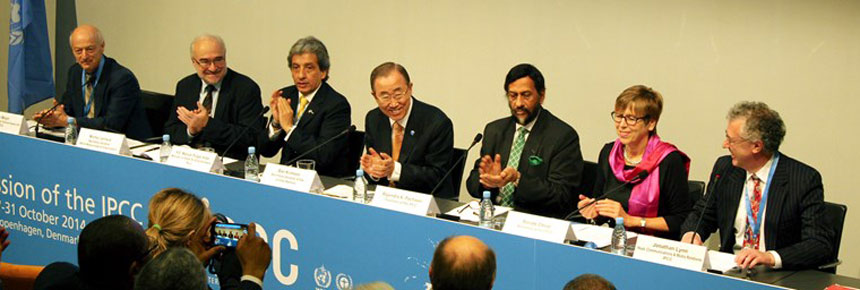Lessons learned in the management of multilateral climate negotiations

GLOBE-Net, March 15, 2015 – In 2009 world attention was focused on the United Nations Climate Summit in Copenhagen (Conference of Parties – COP 15), which for many held the promise of a first-ever comprehensive global accord that would place meaningful limits on greenhouse gas emissions.
That event ended in failure, and the world was left not only without an agreement, but six more years of frustratingly inconclusive negotiations that seem only to have divided the various global factions even further apart.
The Road to Paris – Poorest nations seek US-EU lead on climate deal
IPCC’s urgent warning to tackle climate change
Latest UN Climate Report Released – The News is Not Good
So too, the increasingly strident debate over the warnings of climate scientists (including the ‘Climategate’ controversy over hacked climate researcher e-mails) have created widespread doubt about the true causes of global warming, which in turn has weakened the resolve of some legislators to take bold action to curtail carbon emissions.
Many reasons have been put forward to explain why the Copenhagen summit failed, but a recent in depth study of the contributing factors places the blame squarely on poor management of the negotiations by the Danish Presidency and the United Nations Framework Convention on Climate Change (UNFCCC) Secretariat.
Dr Kai Monheim of the ESRC Centre for Climate Change Economics and Policy at the Grantham Research Institute on Climate Change and the Environment at the London School of Economics and Political Science carried out confidential interviews with senior negotiators from all coalitions involved in the United Nations climate negotiations process, high-level UN officials, lead host organisers and other summit observers.
His research confirmed that a breakdown in transparency of the negotiation process and deep divisions within the Danish host country contributed greatly to the breakdown.
The evidence gathered suggests that the Danish Presidency did not successfully create a transparent and inclusive negotiations process. The Danes had prepared a compromise draft behind the scenes, known as the ‘Danish text’. It infringed upon parties’ prerogative to develop their own negotiation text. Moreover, the exclusive composition of the small group of 30 leaders that hammered out the final deal offended the excluded 90 heads of state and government. Following, what was regarded by many parties as a secretive final session that included only the United States and BASIC (China, India, Brazil, South Africa) coalition of countries, many of the excluded parties made vocal objections to their compromise draft on the grounds of process. As a result the summit only ‘took note’ of the draft and ended in deadlock without agreement.
Significantly altered management practices a year later at COP16 in Cancun, Mexico, were a major factor in a compromise agreement being reached at that event, notes Monheim.
Learning from Copenhagen, the Mexican Presidency and the UNFCCC Secretariat increased transparency and inclusiveness. The organizers reached out widely to all countries, including those who had felt neglected at Copenhagen, such as the Latin American ALBA coalition (Venezuela, Nicaragua, Bolivia, etc.). The Mexicans refrained from drafting a compromise text and reiterated the mantra of ‘no Mexican text’. An open-door policy avoided the small closed circles that had irritated so many at Copenhagen in 2009. Parties could always join the small informal rounds on key outstanding issues under the facilitation of the organizers. The transparent and inclusive process overseen by the organizers was a key factor in the adoption of the Cancún Agreements
Monheim’s research suggests the COP Presidency (France) and the UNFCCC Secretariat can make an important contribution to achieving a successful outcome when nations gather in Paris later this year to finalize a binding international climate accord by:
- Creating a transparent and inclusive process. Transparency and inclusivity are crucial to ensure that all parties understand the negotiation process and its content. This enhances their ability to contribute and to compromise. It also reduces the possibility that parties attempt to obstruct negotiations because of procedural issues.
- Ensuring the capabilities of the organising institutions and individuals. Organizational cohesion within and between the Presidency and the UNFCCC Secretariat plays a key role in successful COPs. Individuals with key organisational roles, for example the President, the Head of the UNFCCC Secretariat and their advisors, must have expert understanding of the negotiation process, as well as being skilled networkers and communicators.
- Securing broad acceptance for the COP President. Building acceptance and trust in the authority of the COP President engenders a sense of goodwill among parties and empowers the President with sufficient leeway to take crucial decisions. It also reduces the potential for parties to block decisions.
- Enabling constructive arguing. Organisers from host nations and the UNFCCC Secretariat can facilitate constructive arguing that lets negotiators from different parties mutually reveal information about the interests that underlie their positions and provide a rationale for possible solutions. By doing so, constructive arguing allows those involved in negotiations to consider interests more comprehensively and to craft a deal that is acceptable to all. It can also make parties more amenable to new solutions and compromises.
Continuity is key
Continuity of the key players is a vital factor in ensuring a successful outcome to negotiations. The departure of Rajendra Pachauri, the chair of the Intergovernmental Panel on Climate Change (IPCC) scheduled for later this year has been hastened by the allegations of sexual harassment of a staffer that emerged last month. The race is on to replace the head of the UN’s Climate Research body before the COP 21 summit. Who will replace him could have a telling impact on proceedings in Paris. (See more here.)
At COP 15 the Danish Presidency was initially led by the Danish Minister for Climate and Energy. She and her team had a high level of expertise in the process and content of climate negotiations, as was reported by around 50 percent of interviewees for this study. However, intense rivalries between this team and the Prime Minister’s Office broke out in the run-up to the summit, which Danish officials frankly conceded in interviews for this research afterwards. They led to the resignation of the principal adviser to the Danish Minister for Climate and Energy, only a few weeks before the summit. The new leading team of the Danish Prime Minister and his chief adviser had a much smaller network among negotiators and less multilateral negotiation experience, as close to 100 percent of respondents complained. The most revealing moment was the statement of the Prime Minister as Conference President in the crucial hours of the closing night of Copenhagen. It was observed by interviewees that, having called for a vote on the compromise proposal the Prime Minister acknowledged, in front of all delegates, that he did not know “your rules”. Tensions between the Danish hosts and the assertive UNFCCC Executive Secretary aggravated the situation and inhibited a joint rescue of the summit. Respondents unanimously mentioned this non-alignment as a crucial driver of the summit’s failure.
Monheim concludes that the key factors that contribute to a successful negotiation process and outcome are:
- A largely transparent and inclusive process
- Highly capable lead organizers and institutions
- A Conference President with high authority
- A negotiation environment that facilitates arguing over bargaining as the negotiation mode.
By contrast, poor negotiation management can be a contributing factor in the collapse of negotiations, from climate change in Copenhagen to the breakdowns of the trade and biosafety negotiations in Seattle and Cartagena respectively in 1999.
These summits either completely failed to reach agreement or reached a political agreement only that was not accepted by all parties. The results cost many countries dearly in environmental, economic, and social terms, notes Monheim.
More detail on this research is available here and in the book by Kai Monheim (November, 2014), How Effective Negotiation Management Promotes Multilateral Cooperation: The Power of Process in Climate, Trade, and Biosafety Negotiations, Routledge.



